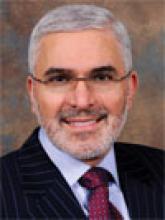A large number of individuals contribute in many ways to the process of discovering, applying, and disseminating new psychiatric knowledge. I am, of course, referring to researchers, clinicians, teachers, and advocates who touch the lives of millions of persons who suffer from mental illness every year. This editorial is dedicated to singing the praises of those who quietly contribute to advancing psychiatry.
Research
Patients. Tens of thousands of psychiatric patients sign an informed consent form and volunteer to participate in clinical trials to test new drugs in double-blind, placebo-controlled studies that could lead to FDA approval. Without these volunteers, it would be almost impossible to develop new medications.
Investigators. Psychiatrists and neuroscientists who dedicate their lives to discovering the causes and treatments of psychiatric brain disorders by conducting basic, translational, or clinical research spend countless hours designing, writing, and submitting grant proposals that have a <10% chance of getting funded. They work long hours to discover new knowledge despite limited resources. They move our field forward with cutting-edge discoveries.
Research assistants. They are an army of skilled technical workers who do the heavy lifting in animal or human research and put in long hours to collect data or conduct tests. Yet they are rarely recognized for their critical contributions to science and clinical practice.
Clinicians. Colleagues who refer their patients to research studies are supporting discovery of new knowledge and without them new psychiatric drug development would slow down considerably.
Reviewers of grants and journal articles. It takes a great deal of expertise and time to identify grants worthy of receiving taxpayer support or to review and recommend the best articles for publication in leading psychiatric journals. Many distinguished researchers—who often are clinicians—donate enormous amounts of uncompensated time to these essential tasks. For a list of colleagues who served as Current Psychiatry peer reviewers in 2010.
Interactive clinicians find time to send in letters to the editor about an unusual clinical observation that may generate new research ideas.
Clinical
Psychiatrists and nurse practitioners, who put in far more than the 40-hour work week to meet the need for psychiatric care caused by the severe shortage of psychiatric clinicians in the United States. They sacrifice their personal needs to help others.
Pro bono clinicians, who donate their services without compensation to those who are indigent or uninsured.
Assertive Community Treatment team members, who reach out to the homeless and seriously sick patients who are the most challenging.
Psychiatric nurses, who are the frontline mental health professionals on psychiatric inpatient units and in psychiatric emergency rooms. They deserve our gratitude and thanks.
Families, whose love and dedication to their mentally ill family members can be critical for seeking psychiatric care or adhering to treatment.
Teaching
Teaching faculty, who provide education and training for physicians, psychiatrists, and nurse practitioners of the future. This includes volunteer (unpaid) faculty who donate their time to supervise psychiatric trainees. They prepare the future generations of clinicians, researchers, and teachers.
Mentors, who may be clinicians, researchers, or both, providing personal guidance, coaching, support and role-models for young trainees or early-career psychiatrists, often shaping their lives and careers. Their generosity and generativity are priceless.
Service
Psychiatrists, who actively participate in their local, state, and national professional societies. I estimate that 10% of the members of any association do the bulk of the work to accomplish the stated mission.
Advocacy groups such as the National Alliance on Mental Illness, Mental Health America, and others who do so much to help persons suffering from psychiatric disorders and whose public service advances the cause of our patients and the mental health field.
Colleagues who step forward and do the gut-wrenching but necessary task of turning in colleagues who commit unethical or illegal acts or who come to work intoxicated. These individuals ensure the integrity of the specialty and prompt their colleagues to seek help.
Celebrities and public figures who openly discuss their personal or family struggles with psychiatric illness. They help diminish stigma, enhance the public’s willingness to seek psychiatric care, and reduce discrimination.
I tip my proverbial hat to all the above heroes. Their ongoing contributions are vital for our profession, and they deserve our gratitude.


